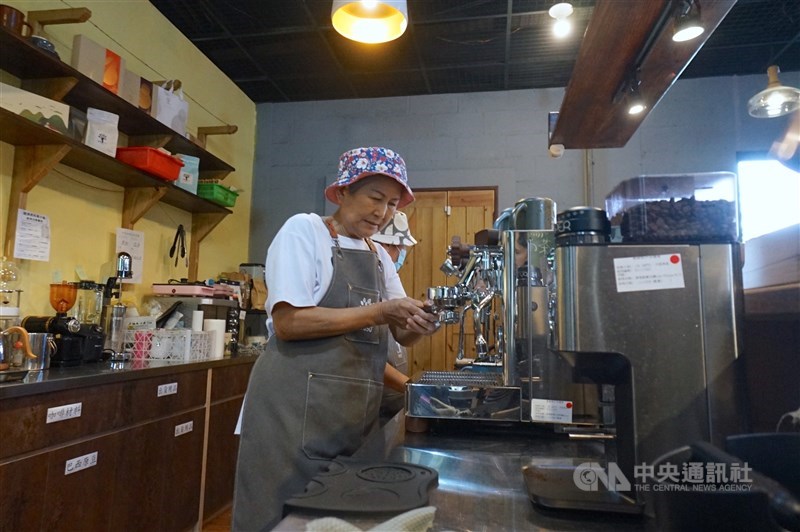
Taipei, Oct. 13 (CNA) A scholar has urged businesses to get used to hiring older people in advance of a government report scheduled to be published on Thursday that is expected to show Taiwan will become a "super aged society" in 2025.
According to Hsin Ping-long (辛炳隆), associate professor at National Taiwan University's Graduate Institute of National Development, Taiwanese enterprises must recognize the "inevitability" of the country's workforce getting older and adjust recruitment policies accordingly.
Many Taiwanese businesses do not know how to utilize older workers, especially enterprises led by "second generation" leaders, Hsin told CNA, referring to the common practice at small to medium sized businesses in Taiwan in which, typically, the business owner's son assumes the leadership role after his father retires.
In such a situation, the relatively younger enterprise boss may not wish to hire older workers in subordinate positions, Hsin explained, adding that this traditional cultural attitude -- linking age with workplace seniority -- needs to be addressed as Taiwan's workforce becomes older on average.
An unwillingness to hire older workers is particularly pronounced in service industries such as the hotel and catering sectors where employers are accustomed to hiring younger people, Hsin said, even though they face staffing shortages.
"It's not that (older workers) can't be employed," Hsin told CNA, "but rather that enterprises are not used to or not willing (to hire them)."
Taiwan's National Development Council (NDC) is scheduled to release population estimates on Thursday, which are expected to show that Taiwan's population structure will transition next year from an "aged society" -- where between 14 and 20 percent of the population are 65 and over -- to a "super aged society," meaning that 20 percent or more of the total population are 65 years or older.
According to data from the Directorate-General of Budget, Accounting and Statistics, the so-called "silver-haired workforce" of people aged 65 and over reached 200,000 in 2012, 320,000 in 2020, and 400,000 in 2023.
The data shows that the proportion of Taiwan's workforce aged 65 and older increased by 5.52 percentage points in the first eight months of the year, whereas most age group categories under 44 years old demonstrated negative growth.
This indicates that workers aged 44 and over -- and particularly "silver-haired" workers -- are accounting for a larger part of the overall workforce, showing that the Ministry of Labor's efforts to encourage older workers to remain in employment has been successful to some extent.
One of the main causes of Taiwan's aging workforce is Taiwan's low birth rate.
According to routine data published by the Ministry of the Interior (MOI) last week, Taiwan's birth rate of 6.15 per 1,000 people was lower than the death rate of 8.11 per 1,000.
Taiwan's population has declined every month this year, the MOI data shows.
The long-term goal in addressing Taiwan's super-aged society should be to raise the birth rate, Hsin told CNA, adding that the government should encourage businesses to employ older workers and reduce their manpower needs, potentially by adopting automation or even artificial intelligence (AI) applications, in the shorter term.
- Politics
Government warns against proposed NHI premium exemptions for seniors
12/30/2024 09:57 PM - Politics
Taiwan's Presidential Office expresses condolences following Carter's death
12/30/2024 09:45 PM - Society
Minister worries opposition bill will upend live-in caregiver market
12/30/2024 08:57 PM - Society
Taiwan revises 2030 carbon reduction target upwards
12/30/2024 08:27 PM - Business
Hon Hai to demonstrate EVs, automotive electronics at CES
12/30/2024 07:49 PM
